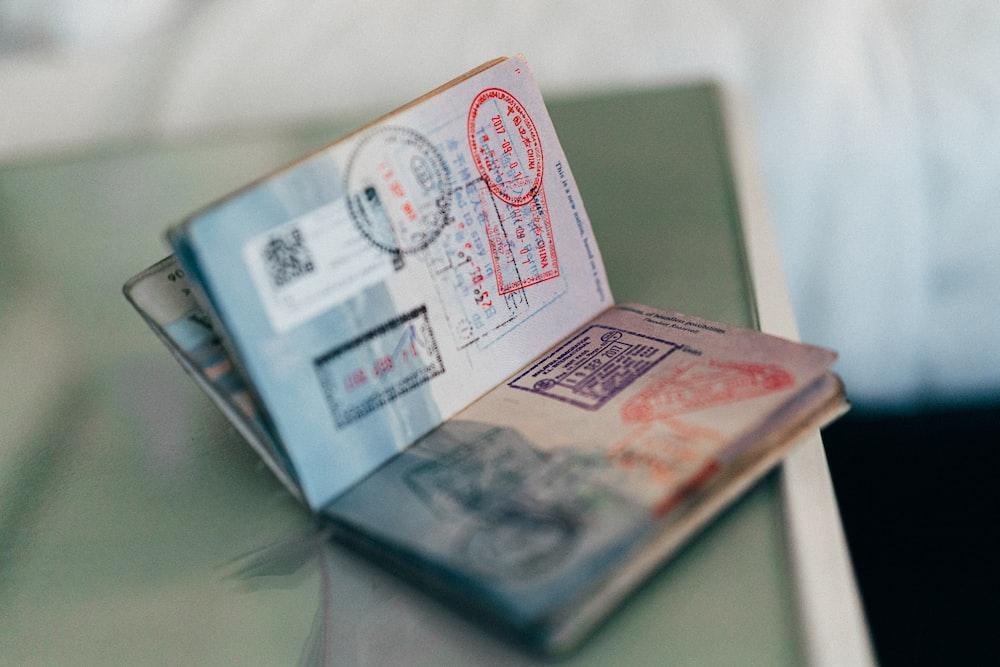Dual Citizenship in Germany is a frequently discussed topic in German politics, especially when elections draw near. Conservative and right-wing players in particular like to invoke debates on the matter in order to score with their constituents.
In 2016, the continuing discussion on dual citizenship came back onto the table: First, in the summer after large-scale pro-Erdogan demonstrations in the aftermath of the attempted coup in Turkey in July. Second, after the CDU party conference in December, the delegates voted to reinstate the so-called “Optionspflicht” (option obligation) as a measure against terrorism. This law forces adolescent owners of two nationalities to decide for one of their passports between the age of 18 and 23.
Even though Angela Merkel aims to preserve the status quo of the dual citizenship, the vote ignited the debate once more. There is an unwritten principle in the German handling of multiple citizenships: it is to be avoided. The idea is to eschew legal complications.
Nonetheless, the reality is a different one, as up to roughly 4% of Germans have at least two passports. I’m being so coy on the number, as the real figures are quite unclear as well, meaning Germany’s dual citizens have never been fully counted.
The German Law on Dual Citizenship
In Germany, dual citizenship is allowed within the borders of the European Union. If all requirements for gaining German citizenship are fulfilled, the existence of a second nationality will be accepted. The legality of two passports, of course, depends on the respective laws in both countries concerned.
I have, for example, a Danish as well as a German passport, which before September 2015 was only possible through a loophole in Danish law, but Denmark changed its policy on multiple citizenships and now I am officially allowed to keep both nationalities. Dual citizenship concerning Germany and a country outside the EU is a very different matter.

International Regulations
There are, for example, countries, such as Afghanistan, Iran, Morocco, or Tunisia, that basically don’t “let go” of their citizens, even if they take on another citizenship and have lived in another country for most of or all of their lives. If you are born to a German parent, you’ll automatically have German citizenship, whether you’ll keep the nationality of your other parent, depends on his or her country of origin. Since 2014, children of non-EU citizens born and grown up in Germany are allowed to keep their parents nationality as well, if they lived in Germany for at least eight years until the age of 21, went to a German school for at least 6 years, graduated in Germany or have a German training certificate.
Who Can Obtain Dual Citizenship by Birth
German citizenship by birth is automatically granted to children born to a German citizen parent. However, specific qualifying criteria must be met for you to obtain dual nationality:
- Born in Germany to a German parent and a parent with foreign citizenship
- Regardless of the birthplace, if you have one German parent and one foreign parent, you can retain both citizenships.
- Born in Germany to parents with multiple citizenships
- If your parents hold multiple citizenships, including German citizenship, you can maintain all nationalities, irrespective of your birth country.
- Born in Germany to foreign parents
- You can become a dual German citizen if born in Germany to parents who are not German citizens, provided at least one parent lived in Germany for eight years with a permanent residence card.
- Born abroad to a German parent
- If born outside of Germany to at least one German parent, you qualify for dual citizenship. However, you must have resided in Germany for a minimum of eight years, with a mandatory six years of attendance at a German school.
It’s important to note that to obtain valid German dual citizenship by birth, your home country must also permit dual citizenship. This can be a restriction in some cases.
Retention of German Citizenship When Pursuing Foreign Citizenship
Under German citizenship law, individuals who willingly apply for and accept foreign citizenship face automatic loss of their German citizenship, unless they have obtained prior permission to retain it. This ‘Beibehaltungsgenehmigung’ (retention certificate) is granted on an individual basis by the Federal Office of Administration in Germany.
To be granted this permission, applicants must substantiate ongoing significant ties to Germany and demonstrate a personal situation in which maintaining dual citizenship would be beneficial or prevent individual detriments. The application form for the retention permit should be submitted to the German Embassy, and proficiency in the German language is a mandatory requirement. Ensure compliance with relevant terms such as German language proficiency, citizenship law, and qualifying criteria.
Political Motivation of Depriving Citizens of their German Citizenship
So what is the CDU, in the person of Minister of the Interior, Thomas De Maizière, aiming at, when it speaks of depriving people (in this case Islamic terrorists) of their German citizenship and when it dwells on limiting the statutes on dual citizenship? To be clear: It is virtually impossible to lose German citizenship if it’s the only one you have. Thus, this threat only addresses owners of at least two citizenships. In the case currently debated, the 677 people that reportedly went to Syria and Iraq to fight for Daesh that would concern roughly 170 persons.
So, even though life would be undoubtedly harder for those people, it seems the De Maizière’s motives are driven by the hopes of appealing to its own right. Numerous other CDU-Politicians aim at abolishing dual citizenship once and for all.
In 2008, about half of all countries on earth allowed dual citizenship, confirming a trend that more and more nations were increasingly tolerant in the matter. Recent rises in right-wing populism and extreme conservatism across Europe and numerous other parts of the world might, of course, turn that trend around.
The Benefits of Obtaining Dual Citizenship in Germany
If you meet the criteria listed above, you can enjoy numerous advantages as a German dual citizen, including:
- Accessing more than 180 countries without requiring a visa.
- Living, working, and studying in any EU country.
- Receiving consular protection abroad from two nations.
- Exploring new business prospects in both Germany and the other country.
If you’d like to learn more about German culture, you can of course join us on our blog. Learn about the benefits you could find from living in Germany – and who knows, maybe one day you’ll apply for dual citizenship yourself!
FAQs about German dual citizenship
Here are some of the questions people ask about German citizenship laws.
Does Germany allow dual citizenship with the US?
Germany generally allows dual citizenship with the United States. If you acquired German citizenship at birth, you can presently hold dual German/US citizenship. Changes to the German citizenship law are expected soon, potentially allowing naturalized German citizens to retain their US citizenship as well.
Which EU countries allow dual citizenship?
The policies on dual citizenship vary among European Union (EU) countries. Several EU countries, including Italy, Spain, and Portugal, generally allow dual citizenship.
Can you get German citizenship through great-grandparents?
Eligibility for German citizenship is determined through the direct family lineage. If your parents, grandparents, or great-grandparents were born in Germany, you may qualify for German citizenship.
Summing Up: Dual Citizenship in Germany
From the evolving debates spurred by political motives to the intricacies of obtaining and retaining German dual citizenship, this exploration of German nationality law sheds light on a pertinent aspect of German identity. As discussions continue, understanding the rules, benefits, and challenges becomes crucial for those contemplating or currently living with German dual citizenship, offering a nuanced perspective on the intersection of law, politics, and personal identity. If you’d like to learn more, come check out SmarterGerman!

